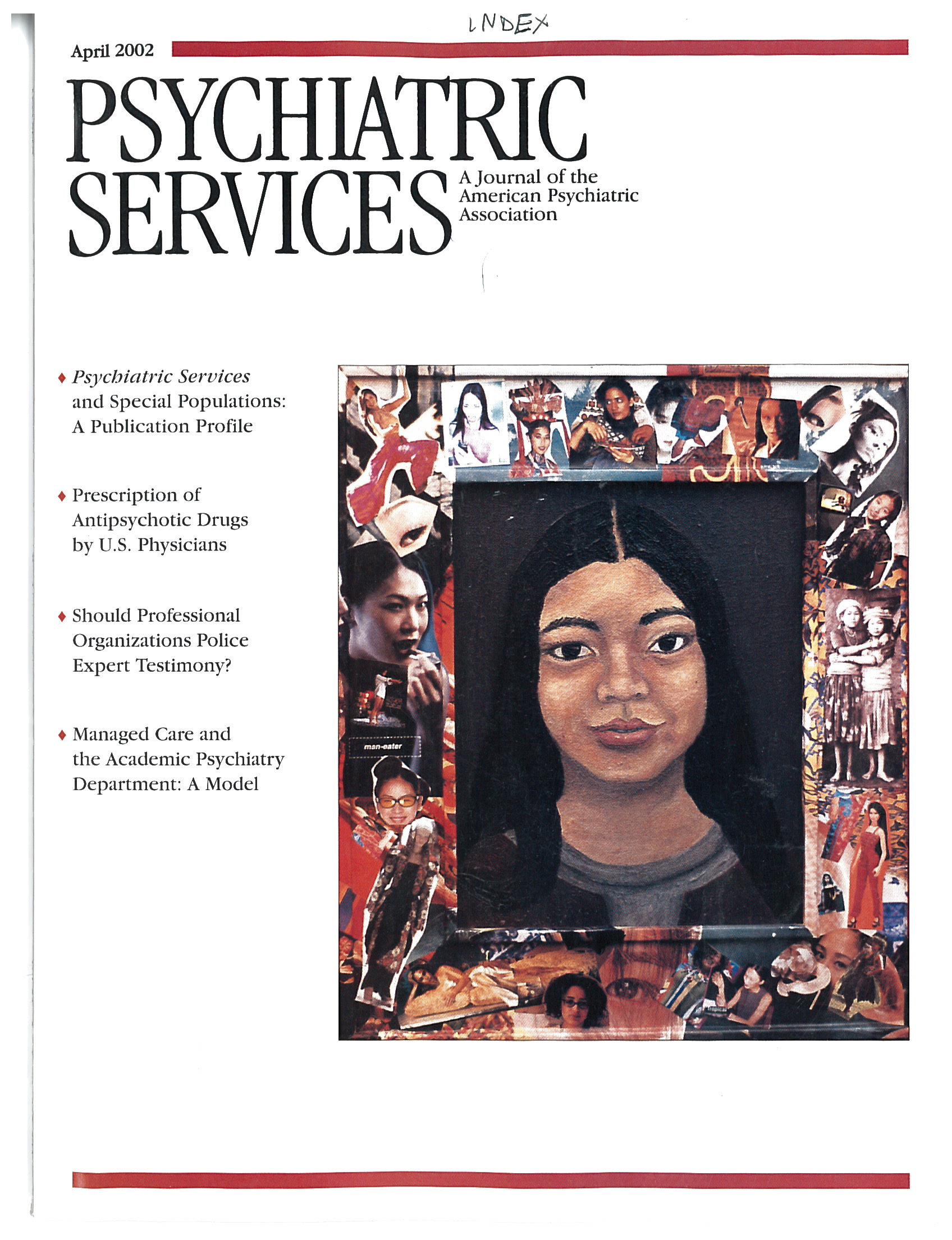Autocastration and Schizophrenia
To the Editor: We read with great interest the article by Dr. Meyers and Dr. Nguyen (1), "Autocastration as a Presenting Sign of Incipient Schizophrenia." Although the authors described the case well, some clinical issues, such as whether substitution therapy with androgens is needed, remain unclear. Recently we encountered such a patient in clinical practice. We would like to describe this case and to comment on the combination of substitution hormonal and antipsychotic treatment that we prescribed.
The patient, a 27-year-old single Caucasian man, was admitted to our hospital after being seen by a surgeon in the emergency department. The surgeon found that the patient's right testicle had been removed and that the left testicle was underdeveloped. The patient explained that he had removed his testicle with a razor under the influence of alcohol, in an "ordeal mood." Before the incident, he had persecutory delusions and a delusion of being guilty for cursing too much and being rude to people. He explained that his act was a payment to God for his sins, although he did not describe himself as religious. According to his family, he had been behaving strangely for two weeks and had been consuming alcohol daily for a few months.
The patient is the son of a farmer. He completed six years of school and was employed as a mill worker. A year before he was hospitalized, he bought a trailer and started to live alone in the woods near his parents' farm. During that period, he experienced feelings of persecution, ideas of reference, and auditory hallucinations.
Results of basic laboratory tests were in the normal range, and psychological examination revealed paranoid interpretations and feelings of self-alienation. In the hospital, treatment with fluphenazine, biperiden, and midazolam was initiated. A month later, the psychotic symptoms subsided, but a combination of reactive depression and negative syndrome was observed, and the medications were switched to sertraline, maprotiline, lorazepam, and olanzapine. The patient was discharged from the hospital in an improved condition after four months. The discharge diagnosis was paranoid schizophrenia, and medications at discharge were olanzapine, alprazolam, and flupenthixol depot. There were no surgical complications. During the hospitalization, a consultant endocrinologist proposed substitution therapy with testosterone. The patient was discharged on depot therapy with 250 mg of testosterone monthly.
It is of clinical interest that substitution therapy with testosterone is necessary for these patients. However, testosterone therapy may have its own adverse effects, which may complicate management of difficult-to-treat patients (2). A recent case report described a patient who developed mania after treatment with testosterone (3); however, another patient with schizophrenia who received testosterone had no changes in psychopathological symptoms (4). Although these findings are inconclusive, it seems that testosterone may pose a risk of symptom exacerbation among patients who have a psychotic disorder. In such cases, close cooperation between a psychiatrist and an endocrinologist is necessary.
The authors are affiliated with the University Psychiatric Hospital in Ljubljana, Slovenia.
1. Myers WC, Nguyen M: Autocastration as a presenting sign of incipient schizophrenia. Psychiatric Services 52:685-686, 2001Link, Google Scholar
2. Uzych L: Anabolic-androgenic steroids and psychiatric-related effects: a review. Canadian Journal of Psychiatry 37:23-28, 1992Crossref, Medline, Google Scholar
3. Barbenel DM, Yusufi B, O'Shea D, et al: Mania in a patient receiving testosterone replacement postorchidectomy taking St John's wort and sertraline. Journal of Psychopharmacology 14:84-86, 2000Crossref, Medline, Google Scholar
4. Cooper AJ, Swamy GN: The effect of testosterone on psychopathology and sexual function in a paranoid schizophrenic self-castrate. Canadian Journal of Psychiatry 39:436-438, 1994Crossref, Medline, Google Scholar



